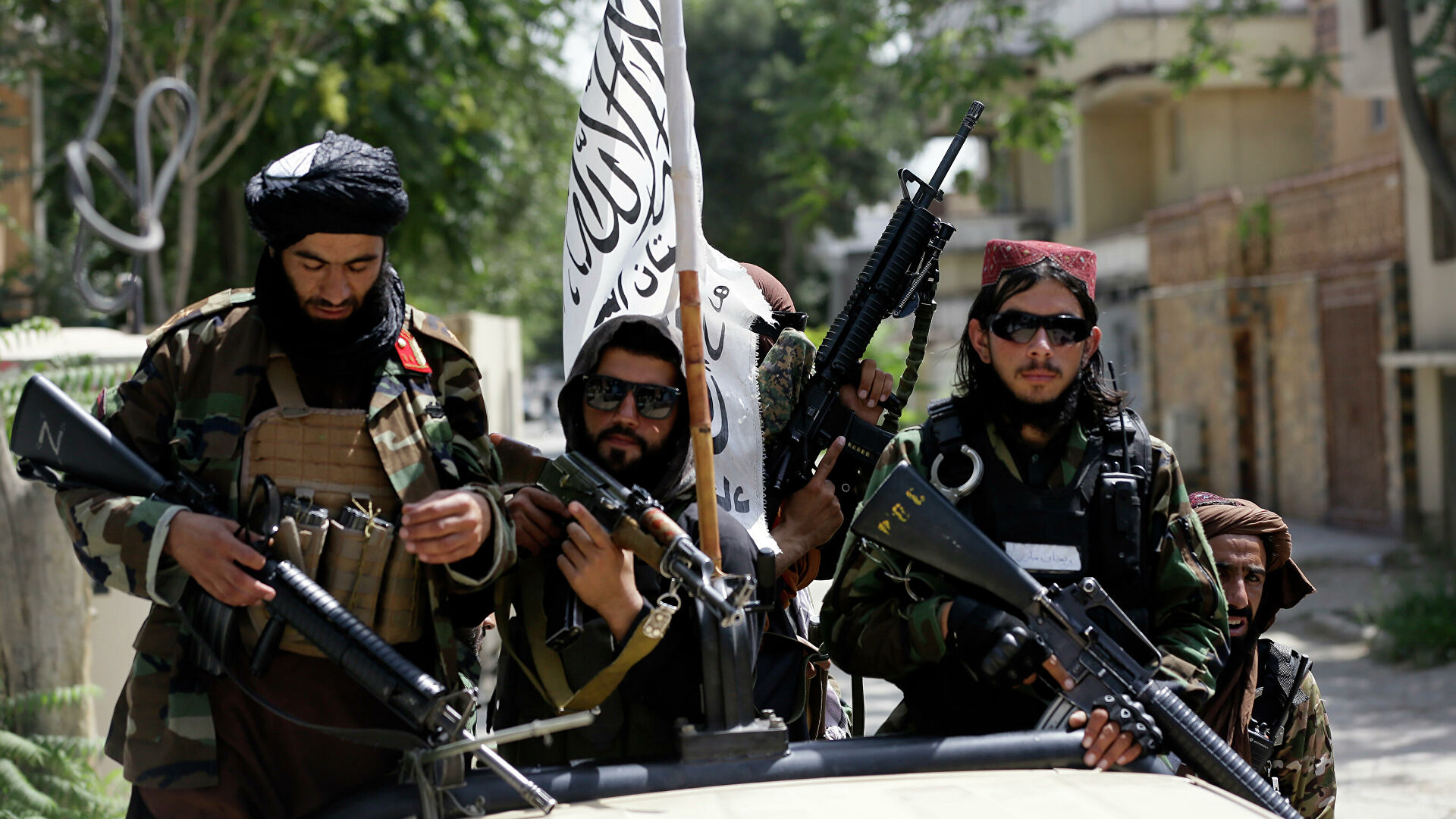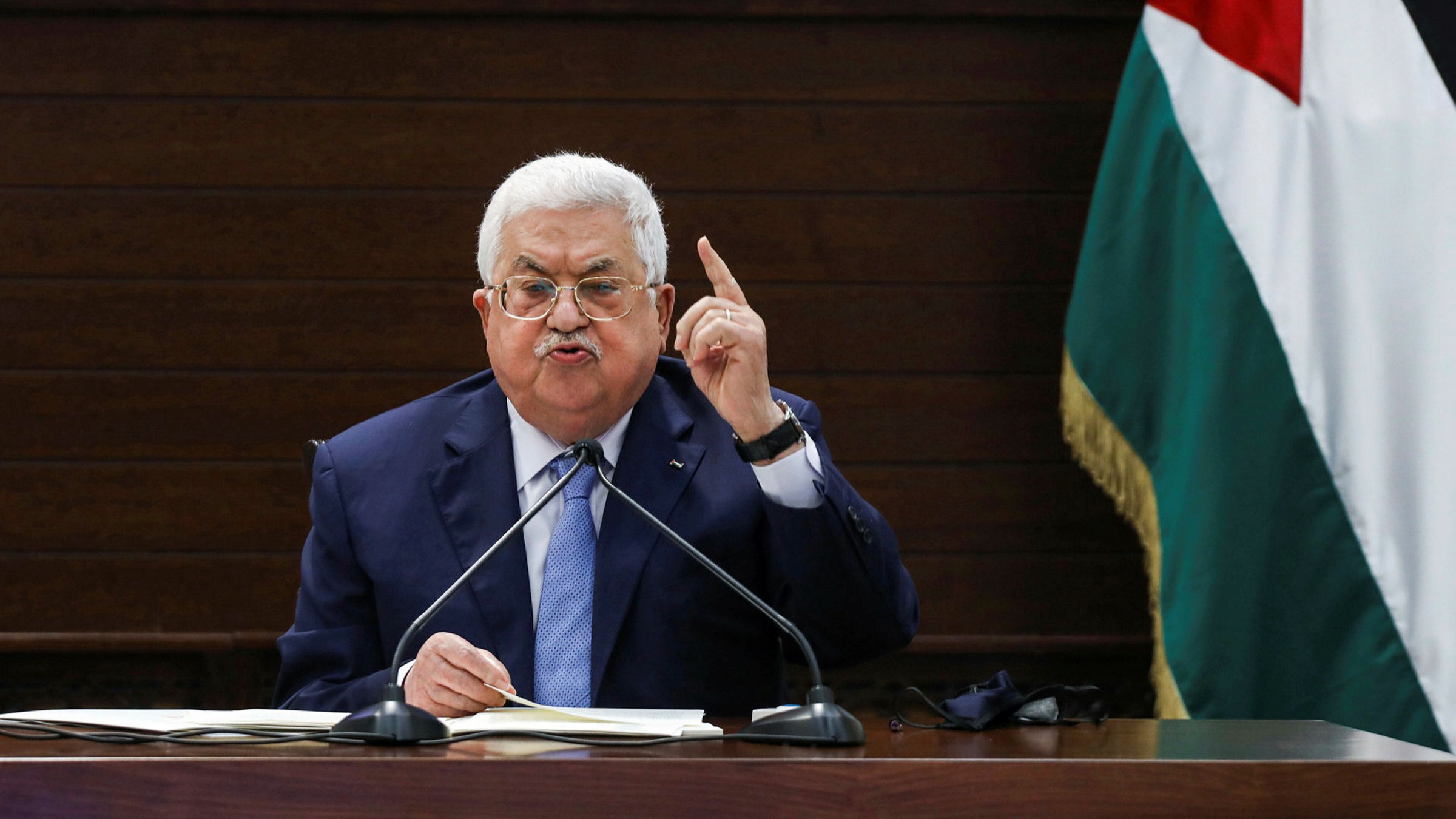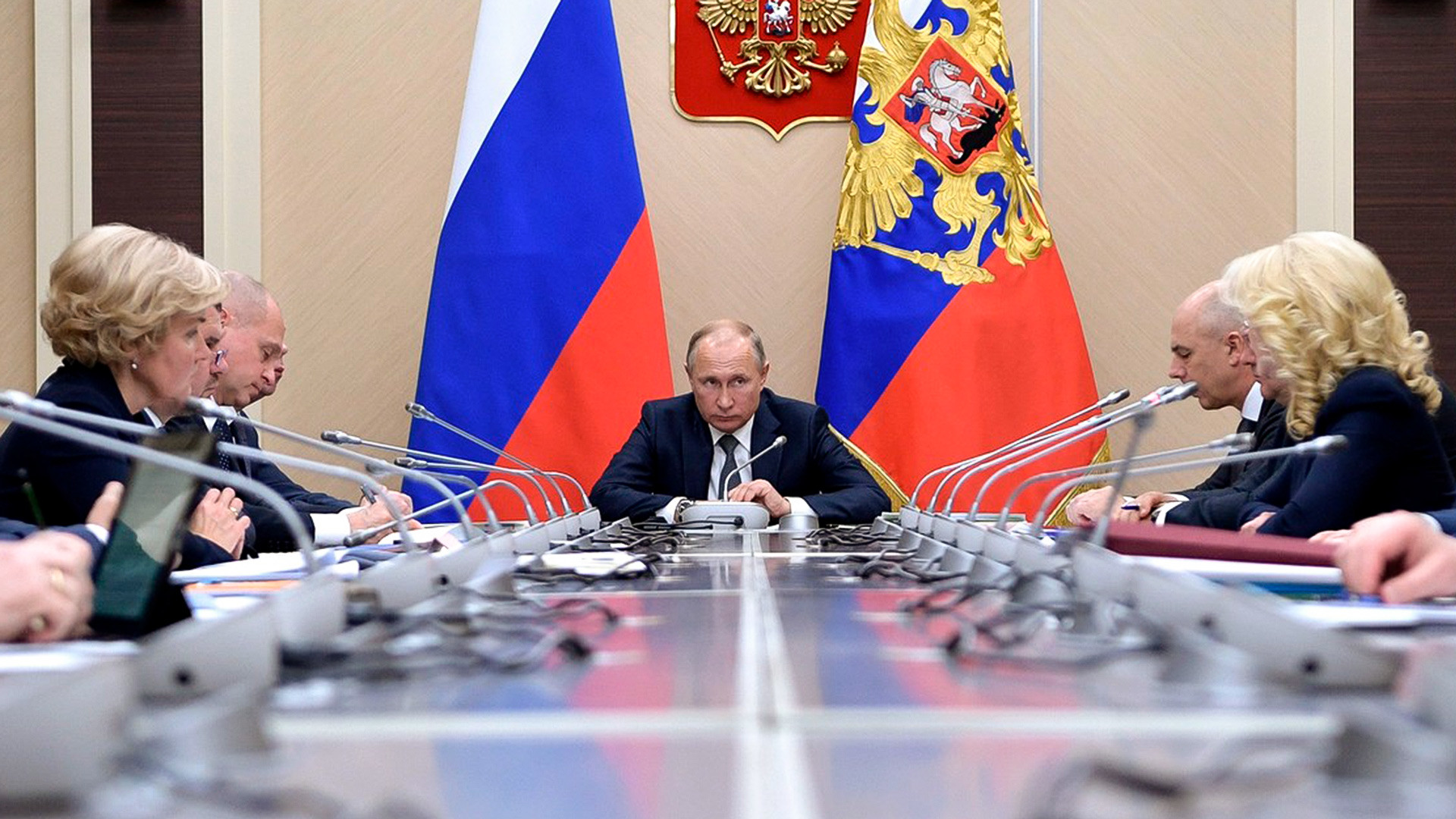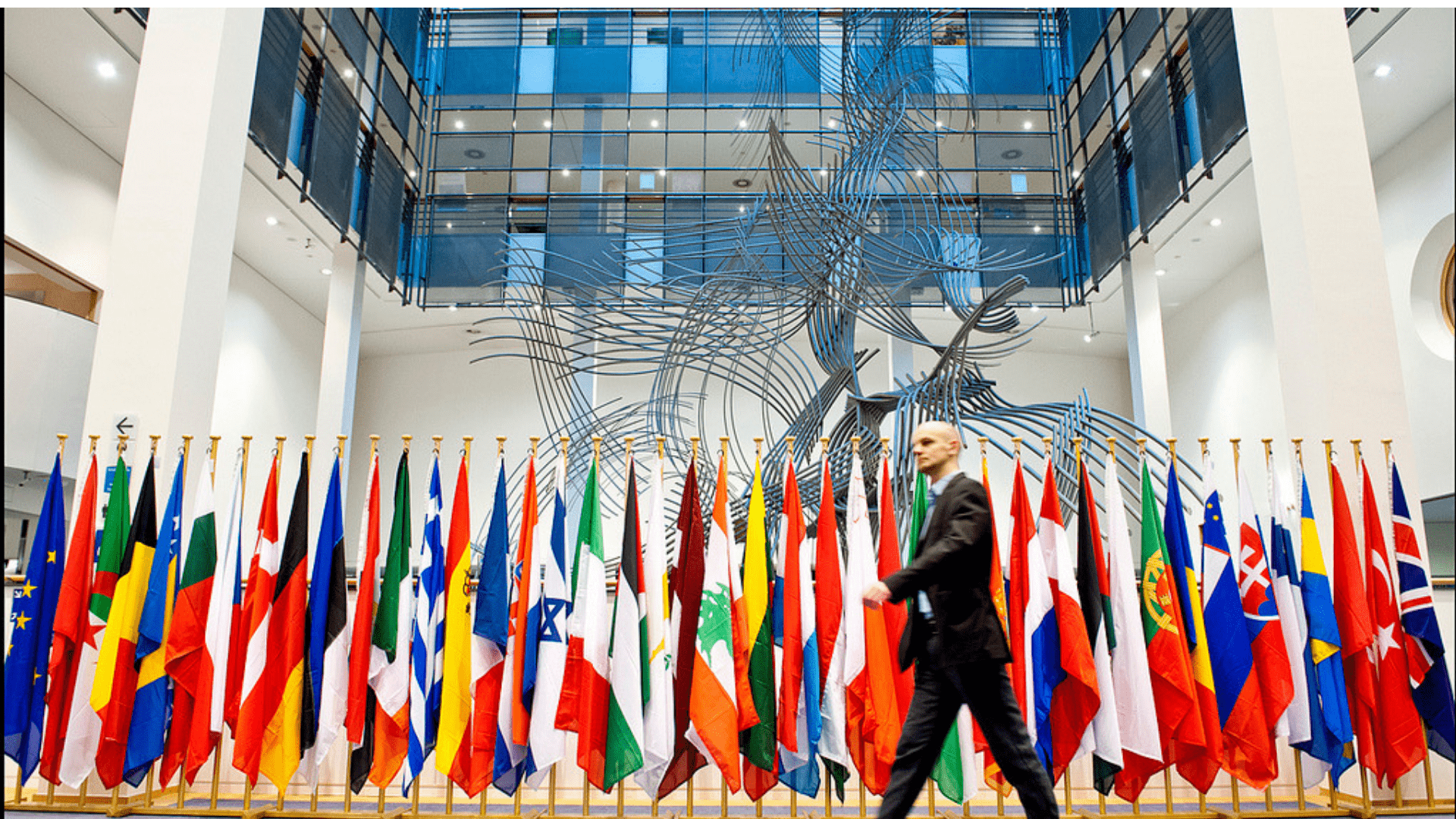An Introduction to Fatah-Hamas Conflict
The Palestine Liberation Organization (PLO) was established in 1964 and recognized as the “sole legitimate representative of the Palestinian people” by establishing diplomatic relations with over a hundred countries and holding UN observer status since 1974. In 1987, the First Intifada broke out as a series of Palestinian demonstrations and violent riots in the West Bank, Gaza Strip, and within Israel as a response to twenty years of Israeli occupation and came to an end with the signing of Oslo Accords in 1993. (Jamal, 2005:29-34) Even though PLO was previously regarded as a terrorist organization (because of its involvement in the Intifada) by the US and Israel, as it acknowledges Israeli state while accepting UNSCR 242 and 338 and rejecting terrorism, the PLO was formally recognized as the Palestinian people’s representative by Israel as well still in today. (Jamal, 2005: 155-166) Prior to the First Intifada, Fatah, along with the PLO, was the only leading political entity in Palestinian politics. However, the Oslo process created a radical opposition among the Palestinians and ended up strengthening another political entity called Hamas that was established as the Palestinian branch of the Muslim Brotherhood in 1987 and regarded as a terrorist organization by the US, Israel, the EU; thus, having a quite controversial status from an international perspective. (Schulz, 1999: 76)
The reconciliation process between Israel and Palestine that began according to the Oslo Accords was highly rejected by Hamas, as it blames Fatah for surrendering Israeli oppression not fighting for the Palestinian people. After the Second Intifada, in 2006, legislative elections were conducted and resulted in Hamas’ victory and leading to the peak of the Hamas-Fatah conflict. Ismael Haniyeh of Hamas formed a new PA government, but Fatah declined to join as Hamas continued to refuse to recognize Israel, undermining the PA’s legitimacy in the eyes of the international community. Furthermore, Hamas took control of the Gaza Strip, establishing de facto authority while removing all Fatah officials since 2007. (Black and Mark 2007) Even though there were several attempts of reconciliation between Hamas and Fatah including years of talks, summits, and agreements, there is still no ending point today while from time to time Hamas-Fatah’s political struggle even overshadowing the Palestinian-Israeli conflict as well. However, a surprising maneuver came from the Fatah Government to hold legislative elections on May 22, and the presidential vote on July 31, 2021, marking the first elections in 15 years. (Hawari 2021)
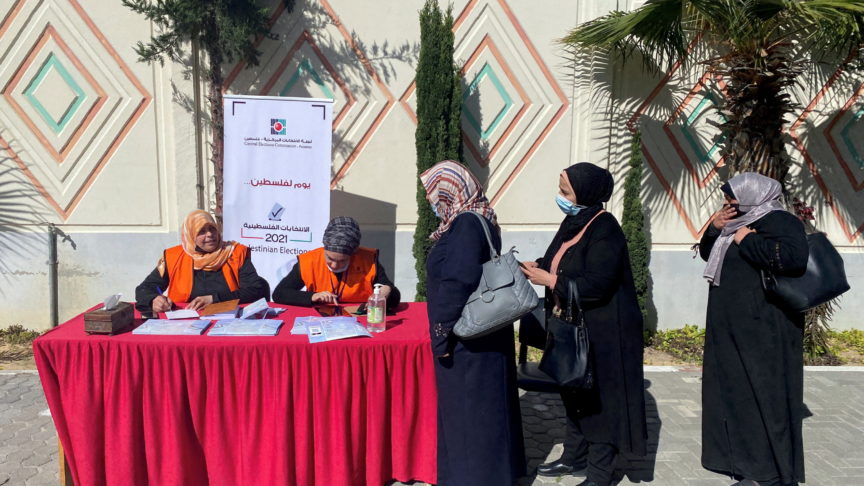

Reflects on the Media
After the official announcement of the elections in January 2021, the political agenda of Palestine and Israel as well as neighboring countries were quite attracted and busy with the developments. To further investigate, I followed the publications of Al-Jazeera and Jewish News Syndicate (JNS) news agencies to see both developments and reflections of the upcoming Palestinian elections. Al-Jazeera is a Qatar-based international Arabic news channel that has been operating for 24 years and even though it receives financial support from the Qatari Government, it still claims to retain editorial independence. Regarding the Jewish News Syndicate, even though being relatively newly established, JNS is one of the fastest-growing agencies that publish both news and decisive columns to examine the developments from the Israeli perspective. Therefore, I chose these two news agencies to see and understand the reflections of Palestinian elections in both the Palestinian (Arab) world and the Israeli world.
Al-Jazeera
The news and columns of Al-Jazeera regarding the upcoming elections were mainly written by Palestinian journalists, therefore they also include the public opinion of the developments. There were three dominating themes: skepticism, concerns over foreign involvement, and the possible Israeli response. To begin with the skepticism, even though the announcement created enthusiasm and support especially by the United Nations circle marking that it would be a crucial step for Palestinian unity, the Arab world and Palestinians seem not to share this enthusiasm. (Al Jazeera 2021) Firstly, it is a fact that the Fatah government and President Abbas are pursuing an authoritarian regime by taking security measures against any political activity that threatens the status quo. (Hawari 2021) There are many doubts on if the elections would ever be fair, free, and democratic or even would be conducted in the first place. I believe that it poses an ontological question to what extent exactly these elections would mean Palestinian people under the Israeli occupation since the Palestinian authority is not free to do anything. A possible explanation is given by the Palestinian columnist is that this maneuver of President Abbas is actually an attempt to improve relations with the US since it hit the bottom as Trump’s administration cut the PA’s funding. (Hawari 2021) They also argue that there was growing pressure from both the domestic and the international arena for President Abbas, who is 85 years old, to give up on his authoritarian rule. Regarding the international arena, Al-Jazeera news and columns also include concern for foreign involvement in the election process. They argue that the announcement was not entirely voluntary but rather pushed by European and American authorities. (Abu Amer, 2021) Before going on with their relations with the Palestinians, both the EU and the US want the Palestinian Authority to regain legitimacy as it lost to the Hamas conflict and its rule of authority and corruption. Additionally, it is argued that Turkey and Qatar are also backing the elections. However, when it came to Egypt and Jordan these developments were not received that much enthusiastically since a possible victory of Hamas might also revive the Muslim Brotherhood in Egypt consequently. When it comes to Jordan, they fear that Hamas’s victory would cause unrest among the Palestinian population living in Jordan. (Abu Amer, 2021) The UAE, on the other hand, argued to attempted to seize over the Palestinian issue from the hands of Egypt and Jordan, through leading efforts for Arab normalization with Israel, to further strengthen its ties with Israel as well as assuring US backing. The last theme of the Palestinian elections from Al-Jazeera’s perspective is the Israeli response. It is argued that Israel is quite concerned by the developments because it wants to keep the status quo, and definitely does not want to see a recurrence of the Hamas crisis back in 2006-2007. (Abu Amer, 2021) President Abbas’s rule is quite preferable for the Israeli authorities since it allows Israel’s occupation and apartheid to continue for the foreseeable future.
Jewish News Syndicate
The Israeli media is sharing the same concerns, but with different grounds. First of all, they think that the upcoming elections pose a threat to the status quo and they claim that President Abbas is actually jeopardizing his own rule while pointing out the possibility of Hamas’s victory. (Lappin 2021) They emphasize that Hamas sees elections as a way to bring Palestinians and the whole Arab and Islamic world together to challenge Israel and interrupt the regional normalization process. (Yehoshua, 2021) It is also argued that this threat is not solely directed towards Israel or the US, but as well as directly to the senior members of Fatah, and to President Abbas himself. They forecast that Fatah will be crashed in the elections, and the abbas will be the one who loses since his party and votes already fractured among former Fatah members and two Intifadas leader Marwan Barghouti and Muhammed Dahlan who is a UAE supported Palestinian political leader. (Lappin, 2021) The Israeli media expected to see the cancellation of the elections. However, as the election dates arrive further, they believe that it would be too late for Abbas to cancel. Therefore, they ask, why would Abbas jeopardize his own rule? It is claimed that Abbas put the elections on the table as a way to get the support of the new Biden Administration and concentrate it on the Palestinian issue, but he almost certainly never intended to hold the elections, even further arguing that it is a theatrical act which gets harder to cancel as days pass, yet not impossible. (Lappin, 2021) There is also one more important issue to be dealt with: how the residents of eastern Jerusalem could vote under the occupation of Israel. Even though there is not yet any attempt or statement to ban the election in the city from Israeli officials, the media depicts that Palestinians are concerned that Fatah will use the question of eastern Jerusalem as an excuse to delay elections. (Schneidmann, 2021) Meanwhile, it is also stated that Hamas is actually preparing the polls outside of the Israeli occupation in east Jerusalem, so that the resident can participate in the elections. Both Fatah and Hamas want to conduct elections there, yet, whereas Hamas might radically respond to any attempt of preventing election, Fatah might use the east Jerusalem problem as an excuse to postpone it.
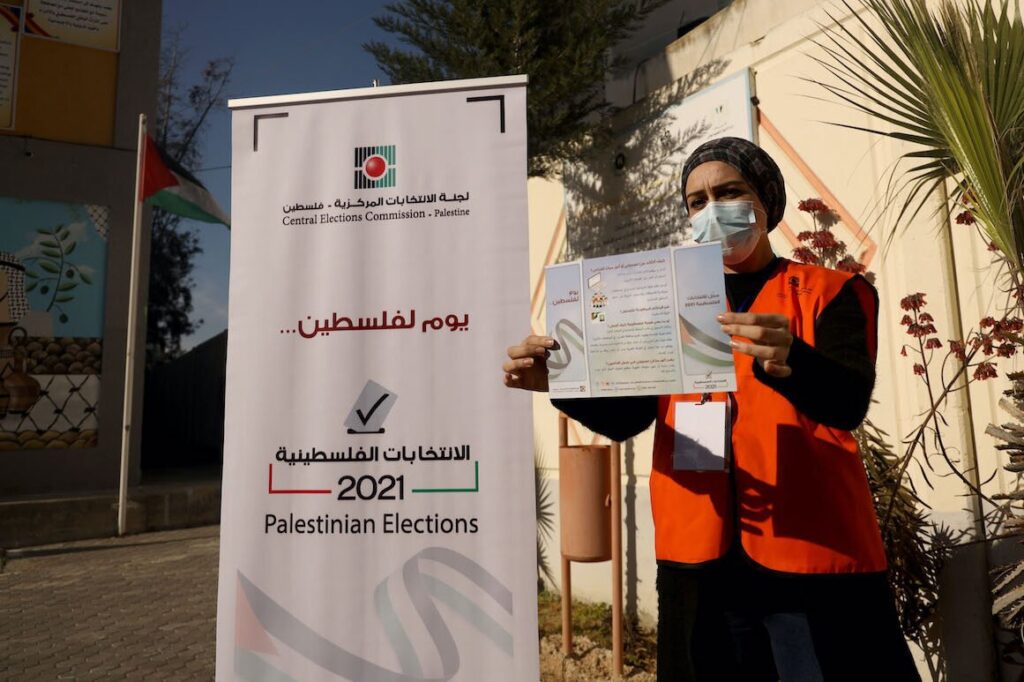

Conclusion
When we generally evaluate the stances of Palestinian and Israeli media to the election announcement, we can say that unlike the enthusiasm coming from the EU and the UN has no influence on either Palestinian or Israeli public opinion. They share the notion of skepticism, while Palestinian media emphasize whether the elections would be indeed fair, free, and democratic. Israeli media argues that President Abbas is likely to cancel or postpone the elections using the east Jerusalem card. They also agree on the chances of Fatah winning are not quite low however, Israeli media is not forecasting a radical movement from Hamas as it happened in 2007, while Palestinian media is more focused on Israeli or Fatah interference (or fraud) to not to let Hamas victory. Regarding the foreign involvement, Palestinian media claims that countries including the UEA, Egypt, Jordan, the USA, Turkey, and Qatar are highly interested in the elections, whereas Israeli media do not explicitly argue foreign involvement, rather put their emphasis on how President Abbas is trying to impress the Biden Administration to gain legitimacy. Even though the two sides differ on certain topics, neither of the sides expects a positive outcome from these elections, let alone rebuilding the democracy in the country. There is still a lot of ambiguity concerning Hamas’ status on whether it will be recognized internationally after its victory, how the elections will be conducted in east Jerusalem or even if it will ever be conducted at all.
Bibliography
“Uncertainty as Palestine’s Abbas Announces Elections.” Al Jazeera, January 17, 2021. https://www.aljazeera.com/news/2021/1/17/uncertainty-as-palestines-abbas-announces-elections
ABU AMER, A. (2021) “Foreign Interference in the Palestinian Elections.” Al Jazeera, https://www.aljazeera.com/opinions/2021/3/21/foreign-interference-in-the-palestinian-elections
HAWARI, Y. (2021) “Palestinian Elections: Democracy for No One.” Al Jazeera https://www.aljazeera.com/opinions/2021/1/27/palestinian-elections-democracy-for-no-one
LAPPIN, Yaakov. (2021) “Palestinian Elections Could Jeopardize Fatah’s Rule in the West Bank.” Jewish News Syndicate, https://www.jns.org/palestinian-elections-could-jeopardize-fatahs-rule-in-west-bank/.
SCHNEIDMANN, S. (2021) “Palestinians Worry Fatah Will Postpone Elections Using Eastern Jerusalem Issue as Pretext.” Jewish News Syndicate, https://www.jns.org/palestinians-worry-fatah-will-postpone-elections-using-eastern-jerusalem-issue-as-pretext/
YEHOSHUA, Y. (2021) “Hamas Head Supports ‘Popular Resistance’ to Gain Legitimacy Ahead of Palestinian Elections.” Jewish News Syndicate, https://www.jns.org/hamas-head-supports-popular-resistance-to-gain-legitimacy-ahead-of-palestinian-elections/.
JAMAL, A. (2005) The Palestinian National Movement: Politics of Contention, 1967-2005. Bloomington; Indianapolis: Indiana University Press
SCHULZ, L. (1999) The reconstruction of Palestinian nationalism: between revolution and statehood. Manchester: Manchester University Press.
BLACK, I, MARK T. (2021) “Hamas Takes Control of Gaza.” The Guardian, https://www.theguardian.com/world/2007/jun/15/israel4.
DAJANI, B. (1994) “The September 1993 Israeli-PLO Documents: A Textual Analysis.” Journal of Palestine Studies 23, no. 3 : 5-23.



